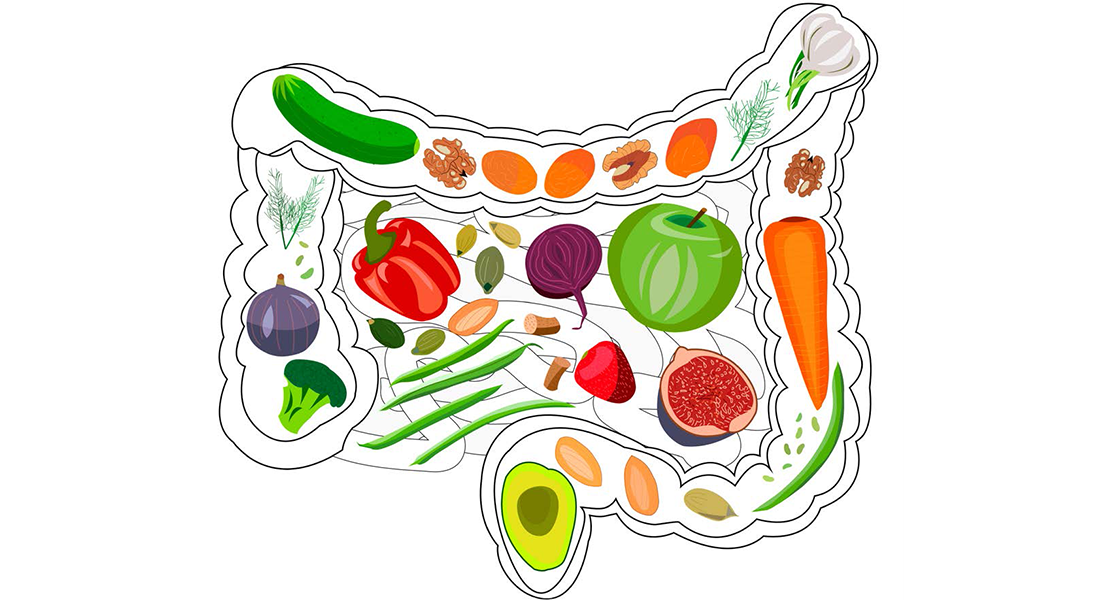PhD defence: Diet and gut microbiota in cardiometabolic health
Studies from the Danish Cohort Diet, Cancer and Health - Next Generations

Agnetha Linn Rostgaard-Hansen
PhD thesis
Cardiometabolic diseases (CMD) are the leading cause of death globally. Diet is a key preventive factor of CMD and a determinant of gut microbiota. Gut microbiota, diet and their interactions have been associated with CMD.
In observational studies, diet is measured by self-reported instruments, that need to be validated before use. Gut bacteria vary over time within an individual, making it challenging to study their relationship with health outcomes. Moreover, different dietary patterns may be associated differently with gut microbiota, but few studies exist.
The overall aim of this thesis work was to investigate the role of diet, gut microbiota and their interplay in cardiometabolic health. The MAX sub-cohort from the Diet, Cancer and Health – Next generations (DCH-NG) cohort was established to: validate the DCH-NG food frequency questionnaire (FFQ), validate a dietary quality score (DQS) and associate it with CMD risk factors, investigate gut microbiota temporal variability and associate these with dietary patterns and investigate the direct and indirect effects of a healthy Nordic and Mediterranean diet on CMD risk factors, mediated by gut microbiota.
The FFQ provided satisfactory ranking of individuals according to energy and nutrient intakes. The DQS was useful to rank individuals into groups of having unhealthy, average and healthy dietary habits. Healthy dietary habits were associated with lower levels of several CMD risk factors. Among bacterial genera, 39% had moderate to good reproducibility (ICC>0.5). Gut microbial subgroups (Bacteroides, Prevotella 9 and Ruminococcaceae) were identified and adherence to plant-based dietary patterns differed between subgroups.
Healthy Nordic and Mediterranean diets were associated with lower levels of adiposity, but no indirect effect mediated by gut microbiota (Prevotella-to-Bacteroides ratio) was found. However, healthy Nordic and Mediterranean diets were associated with lower levels of lipidemia and hs-CRP, mediated by adiposity.
In conclusion, the DCH-NG FFQ can be used to rank individuals according to dietary intake in epidemiological studies and the DQS is a good indicator of overall diet quality. Different dietary patterns associated differently with gut microbial subgroups and specific genera. There was an effect of diet on CMD risk factors, though this effect was not mediated by the gut microbiota.
Download: Abstract; Resumé; List of publications; Contribution report; Table of contents.
2023, 256 pages.
Time
8 December 2023, 14:00
Place
Lokale 5.S.B.C., Kræftens Bekæmpelse, Strandboulevarden 49, 2100 Copenhagen.
and online:
Join the defence on Microsoft Teams.
Meeting ID: 368 002 800 058
Adgangskode: SrbCFE
Opponent
Emily Sonestedt, Associate professor, Nutrition Epidemiology, Faculty of Medicine / Department of Clinical Sciences, Lund University, Sweden.
Grading committee
Monica Hauger Carlsen, Associate professor, Division of Nutritional Epidemiology, Institute of Basic Medical Sciences, University of Oslo, Norway.
Robert Caesar, Associate professor, Department of Molecular and Clinical Medicine, Institute of Medicine, University of Gothenburg, Sweden.
Morten Arendt Rasmussen, Professor, Section of Microbiology and Fermentation, Department of Food Science, University of Copenhagen, Denmark.
Supervisors
Professor Rikard Landberg, Department of Life Sciences, Chalmers University of Technology, Sweden.
Professor Susanne Bügel, Department of Nutrition, Exercise and Sports. Faculty of Science, University of Copenhagen, Denmark.
Co supervisors
Associate professor, Carl Brunius, Department of Life Sciences, Chalmers University of Technology, Sweden.
Senior researcher, PhD, Jytte Halkjær, Danish Cancer Institute, Denmark.
